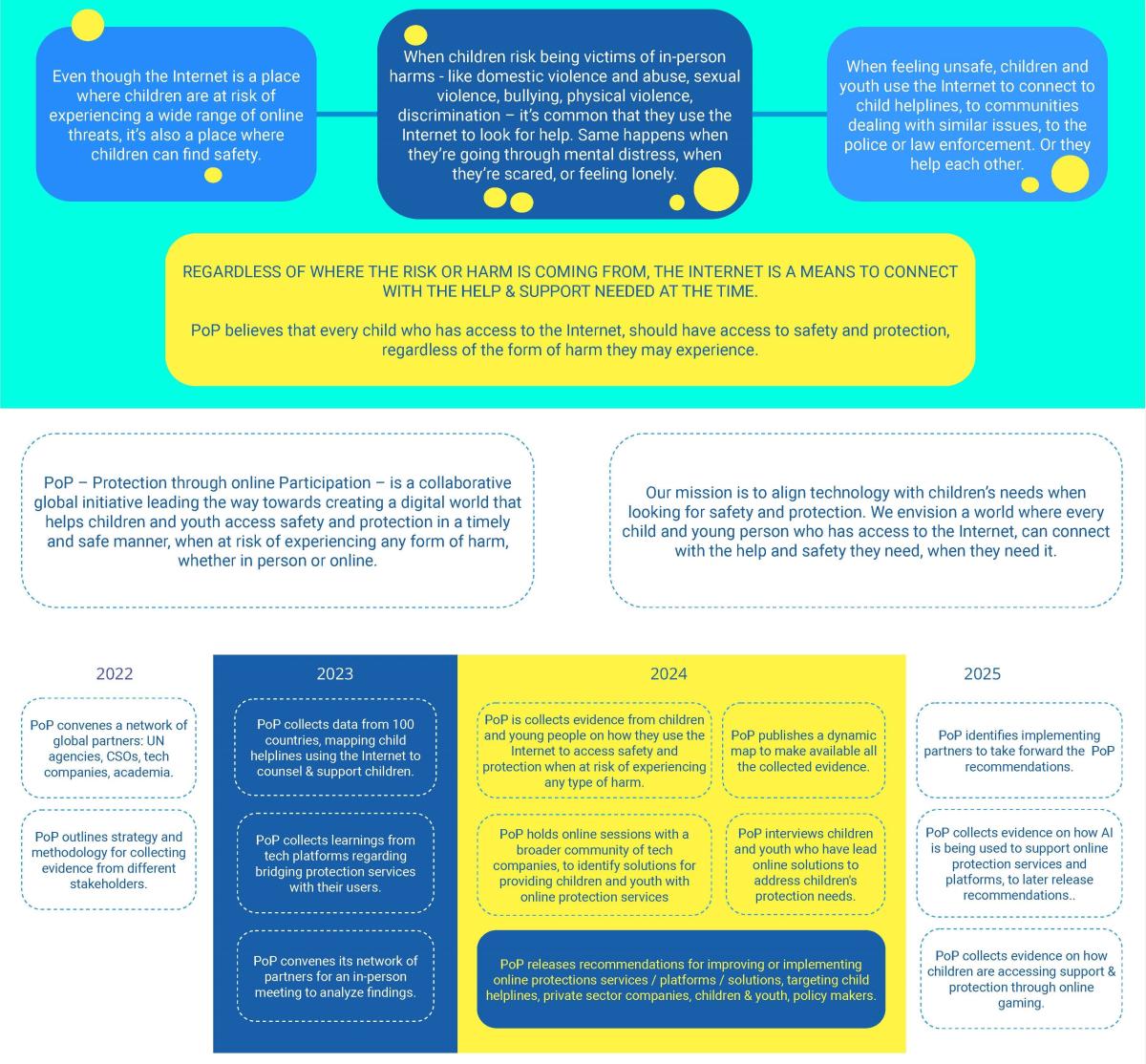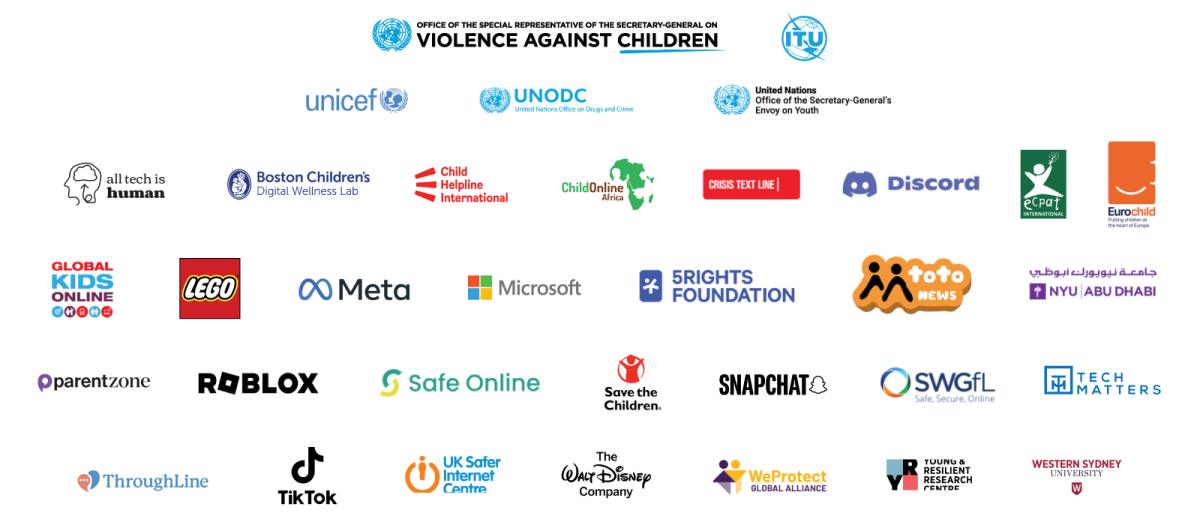POP

POP: PROTECTION THROUGH ONLINE PARTICIPATION
Understanding how children and youth use digital platforms to be safe
Children and young people are increasingly turning to the online world when at risk of any form of violence, online or offline. They access helplines, hotlines, counseling services, and violence reporting systems, and they also use digital platforms to create solutions for the protection needs of their peers. However, there is little information about how these systems operate.
The protection community has been very focused on understanding the risks that children face online - and we need to continue to do that - but it hasn't yet fully understood the other side of the coin: how thanks to having access to the Internet, children can also be safer. Evidence is showing how sometimes the Internet is the only means through which children can access safety, especially in times of lockdown and isolation. This adds an additional layer of complexity to the digital divide, as children who have access to the Internet have higher chances of accessing protection than those who don't. There is a need to bridge that gap.
How are digital platforms an entry point to being safer?
Every child who has access to the Internet, should also have access to online protection system.
POP, Protection through online participation, has the vision of a world where children and young people can safely access support and referral systems through online means, having increased possibilities to receive support, either from their peers or official services.
Through intersectorial cooperation and an evidence-based approach, POP will provide insights into how online protection systems function, in order to share recommendations to the world on how to implement and improve these services. Led by United Nations Agencies, POP is working with over 30 global partners - private sector companies, academia, civil society organizations and children and young people themselves - on making recommendations for implementing or improving online protection services.
Children are turning to the online world to be safe
They are reporting violence. They are connecting with helplines through online means. They are receiving counselling. They are connecting with services. They are coming up with innovative solutions to address the protection needs of their peers.
By better understanding how they're doing it, we can help them get the help they need.
In 2021, disturbed by the reports of rising domestic violence under the coronavirus lockdown, a Polish adolescent girl launched a fake online shop to offer a lifeline to victims trapped in their homes. Victims can hide requests for help from their abuser at home by appearing to shop online. When a victim writes asking to buy a cream, a psychologist responds instead of a salesperson and asks how the "skin problems" have been going on or how the affected skin reacts to alcohol. If someone places an order and leaves an address. It is a code asking for authorities to visit their home.


HOW IS POP DOING THIS?
By collecting evidence on how these systems are working.
POP is currently mapping online protection services (like helplines and hotlines) that use the Internet to provide support to their audiences. It has received over 3000 responses from countries in all regions through an online form being disseminated by POP partners. The next mapping phases include child and youth-led solutions and artificial intelligence-driven services addressing protection and well-being.

By combining evidence collected through POP mapping with in-depth learnings from child helplines, children and youth, and the ICT industry.
In-depth interviews with children and youth leading protection solutions using the internet.
Evidence collected through POP mapping.
Learning from the ICT industry on how their platforms are used to access safety.
In-depth interviews with selected child helplines from different regions

By bringing together partners and experts from different fields to analyze the information and extract learnings on the benefits and challenges of supporting children through online channels.

Different perspectives will be brought together to combine expertise from:
The private sector
UN agencies
Civil society organizations
Child helplines
Academia
Children and young people
Policymakers

By making all the collected evidence available in a digital map for the world to access and use and help bridge online protection systems with children and young people everywhere.

By publishing a report with recommendations for improving and/or implementing these services, addressing:
ICT Industry
Governments & policymakers
Service Providers
UN Agencies
Civil Society Organizations
Children & Youth
WHAT WILL THE REPORT TARGET?
Stakeholders who have not yet activated online protection systems (encouraging them to do so).
Stakeholders who have already activated these systems (with recommendations on how to improve them).



